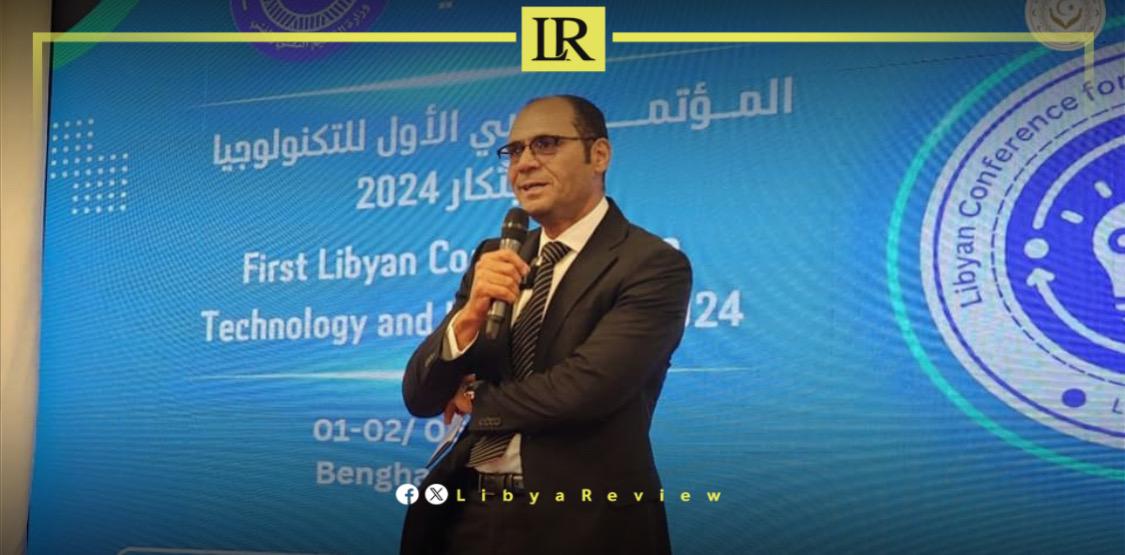Libya’s first Technology and Innovation
Conference 2024 commenced in Benghazi, with the participation of the Libyan Minister of Health, Dr. Osman Abdel Jalil, alongside Member of Parliament Ms. Sultanah Al-Mesmari and several other government ministers.
During the conference, Dr. Abdel Jalil delivered a welcome speech on behalf of the Prime Minister of the Libyan Government-designate, Osama Hammad. He praised the efforts of all those involved in organising this significant scientific event, emphasising the importance of such conferences in advancing scientific development.
Dr. Abdel Jalil highlighted the crucial role of education as a fundamental pillar in the nation-building process. He also stressed the importance of exchanging expertise and learning from countries that are ahead of Libya in technology, innovation, development, and education.
Notably, the Foreign Minister of the Libyan Government-designate Abdulhadi Al-Hwaij highlighted the pivotal role of the Libyan government and the General Command of the Libyan National Army (LNA) in addressing the illegal migration crisis and achieving stability in areas under their control.
In a press statement, Al-Hwaij stated that the Libyan government, in cooperation with the LNA General Command and security agencies, is fulfilling its legal, national, and international duties to protect human rights, including those of foreigners entering the country illegally.
He noted that the root causes of irregular migration are conflicts, such as those in Sudan and other countries, which put Libya in a difficult position as a major transit country.
Al-Hwaij pointed out that the crises in many African countries have a direct impact on Libya. Despite being a victim of the migration crisis, Libya welcomes Africans through legitimate and official frameworks and rejects attempts to settle migrants on its soil.
Regarding solutions to the migration crisis, Al-Hwaij emphasised that Libya believes in a comprehensive approach involving source countries, transit countries, and destination countries. He stressed that the European-African Conference on Migration aims to bring together governments, parliamentarians, civil society, and the media to discuss solutions and mechanisms for implementing them. He underlined that the issue requires inclusive participation from all segments of society.
Al-Hwaij stated that Benghazi and other cities under the control of the government and the LNA General Command are experiencing noticeable stability and development, changing the negative stereotypes previously associated with them.
He emphasised that development, reconstruction, and stability in these areas affirm the presence of the rule of law and institutions, urging conference participants to convey the stability and security they witnessed in Benghazi.
In the context of foreign relations, Al-Hwaij noted that the relations between Libya and Russia are historic and strategic. He highlighted that Russia does not have a colonial past in Libya or any Arab country, making it a genuine and essential partner. He stated that Libya focuses on developing this partnership in economic, commercial, and political fields, based on equality and mutual respect.


